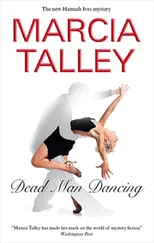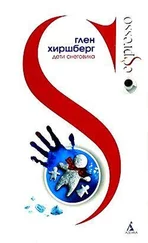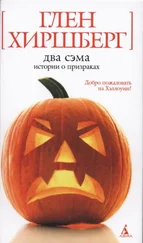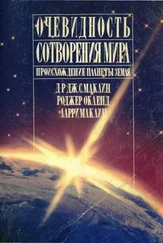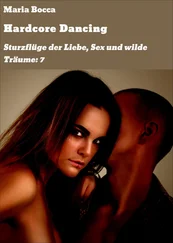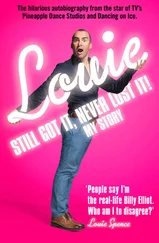Глен Хиршберг - Dancing Men
Здесь есть возможность читать онлайн «Глен Хиршберг - Dancing Men» весь текст электронной книги совершенно бесплатно (целиком полную версию без сокращений). В некоторых случаях можно слушать аудио, скачать через торрент в формате fb2 и присутствует краткое содержание. Жанр: short_story, на английском языке. Описание произведения, (предисловие) а так же отзывы посетителей доступны на портале библиотеки ЛибКат.
- Название:Dancing Men
- Автор:
- Жанр:
- Год:неизвестен
- ISBN:нет данных
- Рейтинг книги:4 / 5. Голосов: 1
-
Избранное:Добавить в избранное
- Отзывы:
-
Ваша оценка:
- 80
- 1
- 2
- 3
- 4
- 5
Dancing Men: краткое содержание, описание и аннотация
Предлагаем к чтению аннотацию, описание, краткое содержание или предисловие (зависит от того, что написал сам автор книги «Dancing Men»). Если вы не нашли необходимую информацию о книге — напишите в комментариях, мы постараемся отыскать её.
Dancing Men — читать онлайн бесплатно полную книгу (весь текст) целиком
Ниже представлен текст книги, разбитый по страницам. Система сохранения места последней прочитанной страницы, позволяет с удобством читать онлайн бесплатно книгу «Dancing Men», без необходимости каждый раз заново искать на чём Вы остановились. Поставьте закладку, и сможете в любой момент перейти на страницу, на которой закончили чтение.
Интервал:
Закладка:
I stared at her. The walls, I noticed, had stilled. I didn’t feel any less strange, but a little more awake. “Journey where?”
“You’ll need water. And I’ve packed you a lunch.” She slipped through the hide curtain, and I followed, dazed, and almost walked into my grandfather, parked right outside the hogan with a black towel on his head, so that his eyes and splitting skin were in shadow. On his peeling hands, he wore black leather gloves. His hands, I thought, must be on fire.
Right at the moment I noticed that Lucy was no longer with us, the hiss from the oxygen tank sharpened, and my grandfather’s lips moved beneath the mask. Ruach.” This morning, the nickname sounded almost affectionate.
I waited, unable to look away. But the oxygen hiss settled again, like leaves after a gust of wind, and my grandfather said nothing more. A few seconds later, Lucy came back carrying a red backpack, which she handed to me.
“Follow the signs,” she said, and turned me around until I was facing straight out from the road into the empty desert.
Struggling to life, I shook her hand off my shoulder. “Signs of what? What am I supposed to be doing?”
“Finding. Bringing back.”
“I won’t go,” I said.
“You’ll go,” said Lucy coldly. “The signs will be easily recognizable and easy to locate. I have been assured of that. All you have to do is pay attention.”
“Assured by who?”
“The first sign, I am told, will be left by the tall flowering cactus.”
She pointed, which was unnecessary. A hundred yards or so from my grandfather’s house, a spiky green cactus poked out of the rock and sand, supported on either side by two miniature versions of itself. A little cactus family staggering in out of the waste.
I glanced at my grandfather under his mock cowl, then at Lucy with her ferocious black eyes trained on me. Tomorrow, I thought, my father would come for me, and with any luck I would never have to come here again.
Suddenly, I felt ridiculous and sad and guilty once more. Without even realizing what I was doing, I stuck my hand out and touched my grandfather’s arm. The skin under his thin cotton shirt depressed beneath my fingers like the squishy center of a misshapen pillow. It wasn’t hot. It didn’t feel alive at all. I yanked my hand back, and Lucy glared at me. Tears sprang to my eyes.
“Get out of here,” she said, and I stumbled away into the sand.
I don’t really think the heat intensified as soon as I stepped away from my grandfather’s house. But it seemed to. Along my bare arms and legs, I could feel the little hairs curling as though singed. The sun had scorched the sky white, and the only place to look that didn’t hurt my eyes was down. Usually when I walked in the desert, I was terrified of scorpions, but not that day. It was impossible to imagine anything scuttling or stinging or even breathing out there. Except me.
I don’t know what I expected to find. Footprints, maybe, or animal scat, or something dead. Instead, stuck to the stem by a cactus needle, I found a yellow stick-’em note. It said Pueblo.
Gently, avoiding the rest of the spiny needles, I removed the note. The writing was black and blocky. I glanced toward my grandfather’s house, but he and Lucy were gone. The ceremonial hogan looked silly from this distance, like a little kid’s pup tent.
Unlike the pueblo, I thought. I didn’t even want to look that way, let alone go there. Already I could hear it calling for me in a whisper that sounded way too much like my grandfather’s. I could head for the road, I thought. Start toward town instead of the pueblo and wait for a passing truck to carry me home. There would have to be a truck, sooner or later.
I did go to the road. But when I got there, I turned in the direction of the pueblo. I don’t know why. I didn’t feel as if I had a choice.
The walk, if anything, was too short. No cars passed. No road signs sprang from the dirt to point the way back to town and the world I knew. I watched the asphalt rise out of itself and roll in the heat like the surface of the sea, and I thought of my grandfather in the woods of Chelmno, digging graves in long, green shadows. Lucy had put ice in the thermos she gave me, and the cubes clicked against my teeth when I drank.
I walked, and I watched the desert, trying to spot a bird or a lizard. Even a scorpion would have been welcome. What I saw was sand, distant, colorless mountains, white sky, a world as empty of life and its echoes as the surface of Mars, and just as red.
Even the lone road sign pointing to the pueblo was rusted through, crusted with sand, the letters so scratched away that the name of the place was no longer legible. I’d never seen a tourist trailer here, or another living soul. Even calling it a pueblo seemed grandiose.
It was two sets of caves dug into the side of a cliff-face, the top one longer than the bottom, so that together they formed a sort of gigantic cracked harmonica for the desert wind to play. The roof and walls of the top set of caves had fallen in. The whole structure seemed more monument than ruin, a marker of a people who no longer existed rather than a place where they had lived.
The bottom stretch of caves was largely intact, and as I stumbled toward them along the cracking macadam I could feel their pull in my ankles. They seemed to be sucking the desert inside them, bit by bit. I stopped in front and listened.
I couldn’t hear anything. I looked at the cracked, nearly square window openings, the doorless entryways leading into what had once been living spaces, the low, shadowed caves of dirt and rock. The whole pueblo just squatted there, inhaling sand through its dozens of dead mouths in a mockery of breath. I waited a while longer, but the open air didn’t feel any safer, just hotter. If my grandfather’s enemies were inside him, I suddenly wondered, and if we were calling them out, then where were they going? Finally, I ducked through the nearest entryway and stood in the gloom.
After a few seconds, my eyes adjusted. But there was nothing to see. Along the window openings, blown sand lay in waves and mounds, like miniature relief maps of the desert outside. At my feet lay tiny stones — too small to hide scorpions — and a few animal bones, none of them larger than my pinky, distinguishable primarily by the curve of them, their stubborn whiteness.
Then, as though my entry had triggered some sort of mechanical magic show, sound coursed into my ears. In the. walls, tiny feet and bellies slithered and scuttled. Nothing rattled a warning. Nothing hissed. And the footsteps came so softly that at first I mistook them for sand shifting along the sills and the cool clay floor.
I didn’t scream, but I staggered backwards, lost my footing, slipped down, and I had the thermos raised and ready to swing when my father stepped out of the shadows and sat down cross-legged across the room from me.
“What…” I said, tears flying down my face, heart thudding.
My father said nothing. From the pocket of his plain yellow button-up shirt, he pulled a packet of cigarette paper and a pouch of tobacco, then rolled a cigarette in a series of quick, expert motions.
“You don’t smoke,” I said, and my father lit the cigarette and dragged air down his lungs with a rasp.
“Far as you know,” he answered. The red-orange light looked like an open sore on his lips. Around us, the pueblo lifted, settled.
“Why does Grandpa call me ruach?” I snapped. And still my father only sat and smoked. The smell tickled unpleasantly in my nostrils. “God, Dad. What’s going on? What are you doing here, and—”
“Do you know what ruach means?” he said.
I shook my head.
“It’s a Hebrew word. It means ghost.”
Читать дальшеИнтервал:
Закладка:
Похожие книги на «Dancing Men»
Представляем Вашему вниманию похожие книги на «Dancing Men» списком для выбора. Мы отобрали схожую по названию и смыслу литературу в надежде предоставить читателям больше вариантов отыскать новые, интересные, ещё непрочитанные произведения.
Обсуждение, отзывы о книге «Dancing Men» и просто собственные мнения читателей. Оставьте ваши комментарии, напишите, что Вы думаете о произведении, его смысле или главных героях. Укажите что конкретно понравилось, а что нет, и почему Вы так считаете.

